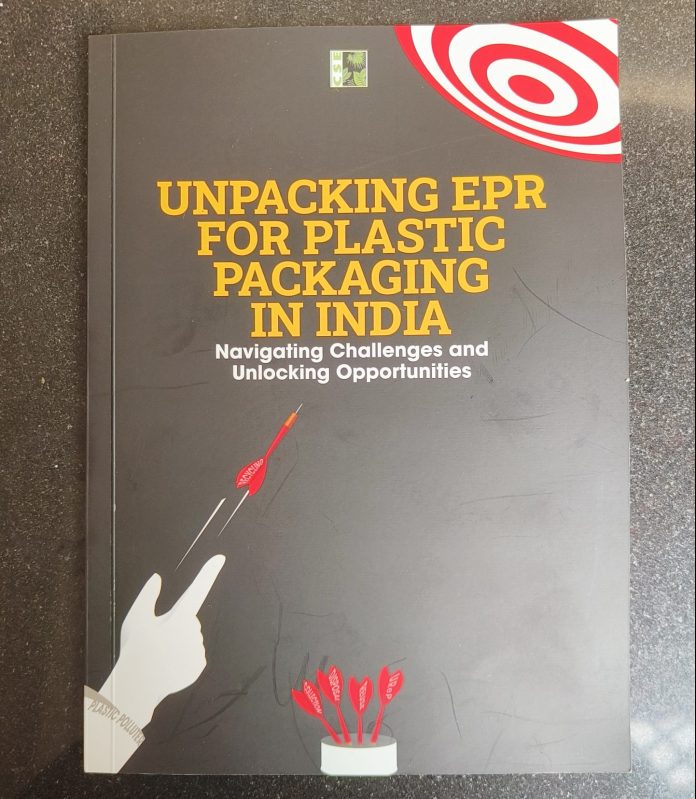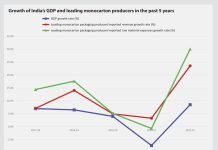
The Extended User Responsibility mandate notified by the Government of India’s Ministry of Forest and Environment in February of 2022 was the action guideline emanating from the Plastic Waste Management Rules issued in 2016 and modified several times. There have been modifications since February 2022 but in the main, these have been clarifications of nomenclature and categories and recently in the moving of a segment of consumer products from one category of flexible packaging to another.
The Center for Science and Environment (CSE) based in Delhi is one of the leading Indian civil society organizations that looks at the entire gamut of environmental issues, including air pollution and deforestation to the country’s participation in the global COP meetings. It has been at the forefront of waste collection and sorting at source and in this work, it has interacted continuously with the central government and with municipal bodies over the past decade as well as civil society.
Its recent project looked at the Extended Producer Responsibility for plastic packaging waste management by a project research team over six months. The result is an immense understanding and two reports that were publicly released at a meeting in New Delhi on the morning of 29 October 2024.
The two reports are Unpacking EPR for Plastic Packaging in India – Navigating Challenges and Unlocking Opportunities, and, EPR Portal Insights – A Deep Dive into India’s Centralized Portal on Extended Producer Responsibility (EPR) for Plastic Packaging. They were released by Sunita Narain, the director general of the CSE, JB Ravinder, the retired joint advisor to CPHEEO, Ministry of housing and urban affairs and by Atin Biswas, program director of solid waste management and circular economy at CSE, and Siddharth Singh, program manager of solid waste management and circular economy at CSE. Deepak Mishra, joint secretary in the department of chemicals and petrochemicals also took part and spoke about the two reports and the government’s commitment to the environmental issues through a virtual connection.
The presentation by Siddharth Singh, based on the downloading and analysis of all the available data on the government’s EPR portal, provided valuable recognition of the immense challenge that this regulation has taken on and an assessment of where we are. Apart from his insights and assessments of the EPR practice, the report is an evidence-based way of discussing the numerous issues and challenges. These stem from nomenclature and possible anomalies to the citing of various asymmetric types of registrations on the portal and malpractices that have so far come to light.
The panel discussion following the release of the two reports demonstrated the presence and active interest of government officials, environment experts, plastic waste recyclers, and civil society including members of several NGOs working with municipal authorities in the Delhi-NCR. Several substantial issues were brought up but to simply acknowledge the work, the two reports, and the overwhelming interest of Indian civil society to work with industry and government on the issue of plastic packaging waste management, I will mention only two connected issues.
The first is the role of the so-called “informal sector”, which is largely or totally ignored by the Plastic Waste Regulations and the EUR notification of February 2022 and the clarifications and amendments onward. The second issue is that the cost and price of waste collection have been ignored and, hence, the value or price of waste disposal and recycling by producers or ‘PIBOS’ has become hugely discounted by numerous registered persons or organizations and this undermines the value of waste collection and sorting.
One coprocessor in the discussion panel said that it’s only worthwhile for her company to use waste for energy if it receives plastic waste at “zero cost.” Several recyclers questioned the need for the EPR regulations if the government is going to cap the value of plastic waste at Rs. 5 per kilogram when just the cost of waste collection is in the region of Rs 15 (less than Euro 2 cents) per kilogram. The packaging industry was by and large absent from the meeting, which is regrettable since it generally has so much to say about the need for waste collection and the measures it is taking to produce sustainable and recyclable packaging.









